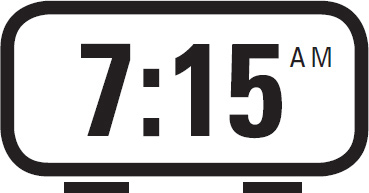

Your brain runs on pure, high-octane sugar, and lots of it. Although your brain accounts for only about 2 percent of your body’s mass, even at rest it consumes about 20 percent of the body’s energy. Glucose passes through the blood-brain barrier into your brain cells and then into the little independent organisms called mitochondria that live in your cells, where it is turned into the basic cellular energy called ATP in a process called the Krebs cycle, which you may remember reading on your forehead in the mirror after sleeping on your high school biology textbook. In any case, your brain can’t really store glucose and so, like a hummingbird, it needs a steady drip. When you eat sugar your brain gets a glucose flare and then it peters out, like one of those Estes model rocket engines. And if you don’t eat at all, well, your body can metabolize some of its fat resources to keep your brain from turning into a turnip, but it ain’t exactly ideal.
All this is to say that your brain needs a good breakfast. From book smarts to decision making to processing speed to memory to willpower, if you don’t feed your brain, it will punish you. Study after study shows that the unfed brain underperforms the fed brain on just about any task you can imagine. If you want to get nitpicky, brains that are fed breakfasts with a low glycemic index outperform brains that are fed only sugary foods. For example, a study of 290 children published in the journal PLoS ONE shows that kids who ate low-glycemic-index, rice-based breakfasts had higher gray matter volumes and even higher overall IQs than kids who ate high-glycemic-index, primarily bread-based diets. And when UK researchers compared Cheerios to a glucose drink to no breakfast in twenty-nine schoolchildren, they found that the glucose-drink and no-breakfast groups crashed and burned on cognitive tests performed later in the morning.
BRAIN BREAKFAST
Yes: Old-fashioned oatmeal, whole-wheat toast, raisin bran, grapefruit
No: Instant oatmeal, bagel, sugary cereal, apple juice, raisins
Source: Harvard Medical School glycemic index for 100+ foods
It’s not that a little sugar is a great and horrible brain killer, to be avoided like mercury in shellfish. In fact, it’s been shown that a little sugar functions as a nice a.m. pick-me-up, and that may be why cultures around the world have evolved cuisines that tend to include a bit more sweetness in breakfast than in lunch or dinner (think syrup-drenched pancakes and two lumps in the coffee). But it’s a bit like the old idiom about hats and cattle: all hat (sugar) and no cattle (low-glycemic-index foods) and your morning wakefulness may be short-lived. In terms of breakfast, if you’re going to wear the hat, you’d better also have the low-glycemic-index cattle to go with it.
At least skipping breakfast helps you lose weight, right? Wrong. Even when you pull out all the socioeconomic and demographic factors you can imagine might be different between people who eat breakfast and those who don’t, people who don’t eat breakfast are across the board more likely to have a high BMI. There have even been FDA-approved clinical trials that show prescribing breakfast helps promote weight loss. How can eating help you lose weight? Simply, eating breakfast makes your brain able to resist unhealthy snacking later in the day. If you want to be thin, start by being realistic: eat breakfast.